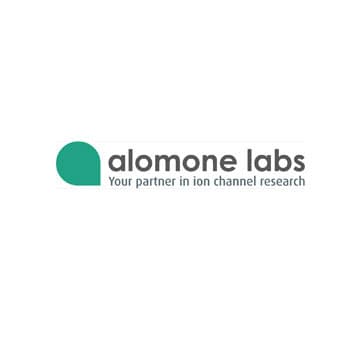
Supplier:
Alomone Labs Limited.Cat no: AER-011
BUY Anti-EphA1 (extracellular)
Structurally, Eph receptors contain an extracellular ligand-binding domain, a transmembrane domain and an intracellular C-terminal domain responsible for intracellular signaling. Forward Eph receptor signaling involves autophosphorylation of the receptor via a tyrosine kinase domain, as well as phosphorylation of other proteins. Known effectors of the forward signaling include Src kinase and Ras/Rho GTPases. Much less is known about the reverse signaling mediated by Eph receptors. Besides from acting independently, Eph receptors can also signal in concert with other receptors. For example, Eph receptors cooperate with FGF receptor, NMDA ligand-gated ion channel and chemokine G-protein coupled receptor.
Biological activities attributed to the Eph receptor-ephrin signaling module include establishing neuronal connections, mediating neuronal plasticity and repair following neuronal injury. Eph receptors may also have a role in the immune system.
Eph receptors are expressed in the developing nervous system, and in the adult brain. It is also detected in the pancreas, intestine, bone and lymphocytes. In cancer cells, Eph receptors and ephrins are overexpressed. They are also implicated in neurodegenerative disorders like AlzheimerпїЅs disease.
Prices direct from Alomone Labs Limited.
Quick response times
Exclusive Absave savings/discounts
SPECIFICATIONS
Catalog Number
AER-011
Size
50 micro l
Applications
ICC, WB
Hosts
Rabbit
Reactivities
Hum, Mouse, Rat
Conjugates
Unconj
Form
Affinity purified antibody, lyophilized powder
Target
Ephrin type-A receptor 1\nEphrin type-A receptor 1; Tyrosine-protein kinase receptor EPH; EPHA1\n
Clonality
Polyclonal
Shipping Temp
Room Temperature
Target Synonym
Ephrin type-A receptor 1; Tyrosine-protein kinase receptor EPH; EPHA1\nEphrin type-A receptor 1; Tyrosine-protein kinase receptor EPH; EPHA1\n
Latest promotions
Buy any polyclonal or monoclonal antibody from our extensive range of pre-made antibodies and for a limited time only receive a $50 discount!(T&C apply:...
New brilliant antibodies, and new lower prices!For flow cytometry reagents in general, \"bright is better.\" The violet-excitable BD Horizon™ BV421 and...
10% Discount on 2 Rabbit Polyclonal Antibody Service. With over 20 years experience, SDIX has developed into the premier US custom antibody producer,...
For the past decade scientists have extensively used ATS secondary toxin conjugates to make their own targeted toxins for in vitro use.The ability to combine...
We're so sure that you'll prefer Cayman Assay kits over your present brand that we're willing to give you a free assay kit to prove it!
Did your supplier increase the price of Fetal Bovine Serum? Did they substitute the US Origin with USDA? Well say no more! Innovative Research is still...
Bulk Cytokines with Custom Vialing.20 - 50% off cytokines, growth factors, chemokines and more...For a limited time Cell Sciences is offering substantial...
Are you planning to have a customised antibody made for your research?Since 2000, Everest has been producing a catalog containing thousands of affinity...
Top suppliers
Agrisera AB
11 products
Biotrend
Biosensis
969 products
ABBIOTEC
3011 products
SDIX
1 products
Spring Bioscience
2291 products
Cell Signaling Technology
4976 products
Rockland Immunochemicals, Inc.
7592 products
Boster Immunoleader
1533 products
OriGene Technologies Inc.
5281 products
Maine Biotechnology Services
227 products
BD (Becton, Dickinson and Company)
1 products
ABNOVA CORPORATION
Randox Life Sciences
1502 products















